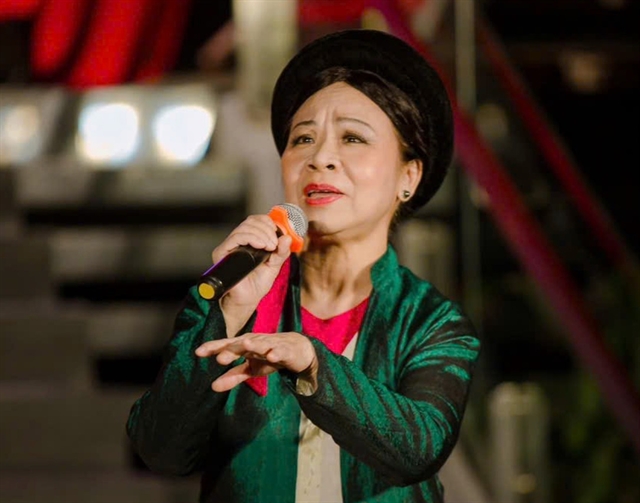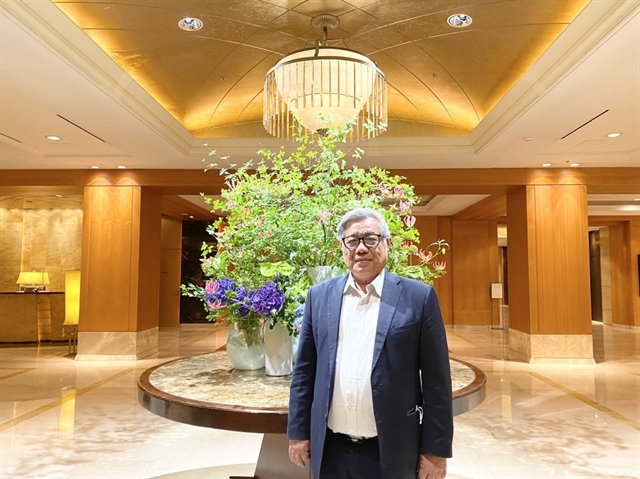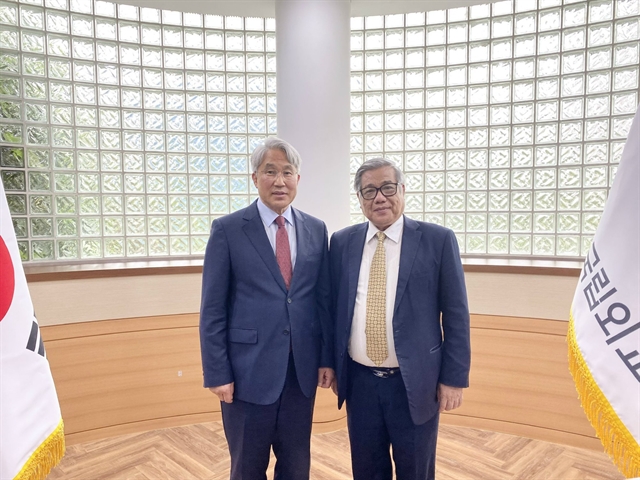 Inner Sanctum
Inner Sanctum

Professor of Science Vũ Minh Giang attracts attention for his erudition every time he chairs a major conference at home and abroad. He is chairman of the Specialty Council of the Centre for Asian Studies and has just visited Seoul in the delegation of the Ministry of Foreign Affairs to bring cooperation between Việt Nam and South Korea to new heights. Vi Thùy Linh talks with him.
 |
| Prof Dr Vũ Minh Giang. — Photo courtesy of Vũ Minh Giang |
Inner Sanctum: As a historian with a rich and expressive Vietnamese language and well-versed in Chinese, what do you think about the compatibility and development of the Vietnamese language in South Korea and vice versa?
Like Vietnamese ancient script, Korean vocabulary has many words adapted from Han Chinese. Being able to understand Han characters as a teenager, for me, was an advantage when I studied South Korean culture and history.
Currently, major South Korean universities all have Vietnamese departments, and the number of South Korean students learning and being graduate students in Việt Nam has increased. Vietnamese has become the second foreign language in the university entrance exam in South Korea. This is just the beginning of the friendship and closeness between the two countries.
Inner Sanctum: South Korean cinema has the famous movie 'Spring, Summer, Autumn, Winter… and Spring'. What do you think of the cinema, nature, and life in South Korea?
South Korea is a movie powerhouse. And for me, it is also a land of thousands of years of poetry and traditional books. South Korea is like a fascinating movie that knows no end.
The film Spring, Summer, Autumn, and Winter… and Spring attracted viewers as soon as it was released in the fall of 2003, which was the year I had an impressive trip to South Korea. The great work of director Kim Ki Duk won many awards at international film festivals. Although Kim died in Latvia in December 2020 during the COVID-19 pandemic, the natural vitality in his work is still transforming the life and nature of this country with images that are deeply remembered.
I am lucky to travel around the world, and there are countries that I have visited many times, so I can admire all four seasons. In South Korea, the spring is full of cherry blossoms, the flowers bloom in the summer, autumn leaves are red and yellow, and the winter is full of white snow.
When visiting Seoul, those who love to explore do not want to sleep. As a big city in Asia, Seoul is full of charm, from its splendour and modern aspects to its most ancient and idyllic. I miss the streets, walking roads and even the famous Dongdaemun market in Seoul.
Inner Sanctum: You have been a guest of two South Korean Prime Ministers. Can you share something about this special honour?
When I was a vice president of Hà Nội National University, I and Prof Dr Mai Trọng Nhuận, director of Hà Nội National University, were invited by the then Prime Minister to visit Seoul National University in 2009.
After that, alongside Seoul National University, we co-founded BESETOHA, a forum in which four representative East Asian universities – Peking University, Seoul National University, the University of Tokyo and Hà Nội National University – meet to discuss the present state and future directions of university education and educational culture.
After that, Park Tae-joon, chairman of Posco Group and Prime Minister of South Korea, invited me to visit. I am still proud of this old friend.
I was impressed with Park as I met him many times. Leaders of Hà Nội National University invited him for an exchange on January 29, 2009, when he was 82 years old. Park always considered education the greatest cause of public good. He also invested in Hà Nội National University. Eleven years after he left, his will and aspiration are still alive: "Modernizing the country, turning the age of challenges into an era of glory."
 |
| Prof Vũ Minh Giang (right), and Vice Minister of Foreign Affairs of South Korea and Director of the South Korean National Diplomatic Academy, Hong Hyun-Ik in Seoul. — Photo courtesy of Vũ Minh Giang |
Inner Sanctum: I feel that your assignment trips are like emotional cultural experiences. What are your thoughts on this?
I visited South Korea many times. I also consider it a research experience in which I immerse myself in that place emotionally, not just passing by. I observed, discovered and experienced with the mind of a historian who loves math to come up with new research methods for history. Culture is the vitality of science, and I constantly add new documents, data, and witnesses.
I paid great attention to museums. Jeju Island alone has many museums, including a museum of folklore, art, nature, science, children, gardens and, especially, a museum of sex and health, a bold museum for Asian viewers.
I remember the bright pink colour of cherry blossoms in Seoul in April, making everyone look at it and return to their youth. I remember the birches glowing in Autumn and the trees softly burning the colour of fire.
The strength of culture creates national pride. The South Korean government, every term, pays attention to preserving heritage, and traditional culture, from customs and living habits to festivals, palaces, old houses and old towns.
Long-standing ancient values are cherished as a sustainable spiritual vitality -- not just a "shell" to exploit the tourism industry for profits. VNS




